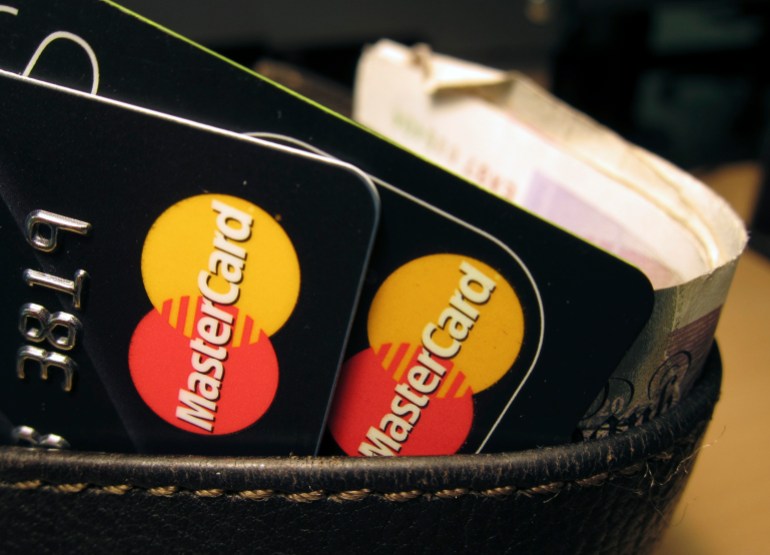Mastercard intends to increase the fees that European Union companies face to receive payments from UK online shoppers by at least 400%, in a move that could mean higher prices for consumers.
Writer Hillary Osborne said in a report published by the British newspaper (The Guardian) that when using a credit or debit card, a percentage of the purchase price is paid by the retailer of the bank that issued it as an exchange fee, which is determined by the payment company.
The MasterCard swap fee is currently 0.3% on credit card payments and 0.2% on debit card payments, but it has informed European Union companies that these fees will rise to 1.5% and 1.15%, respectively, effective October 15.
The Financial Times - which spoke about the change for the first time - said the increase would benefit banks and card providers, not MasterCard.
Since 2015, the European Union has set maximum fees throughout the European Economic Area, including within the United Kingdom, and current MasterCard fees correspond to the imposed maximum.
As for the new fees, they are equivalent to the maximum fees on non-European Economic Area cards used for online purchases within the region, which include Iceland, Liechtenstein and Norway, in addition to the European Union countries.
To whom does the change apply?
The change announced by MasterCard will apply to online sales in stores and companies located in the European Economic Area, which are made with cards issued by the United Kingdom.
On the other hand, this high percentage will not apply to travelers during direct purchases, and transactions made by cardholders in the United Kingdom in British companies and stores will not face higher rates of fees.
Mastercard exchange fee currently stands at 0.3% on credit card payments (Reuters)
"As a result of the United Kingdom leaving the European Economic Area, we will adapt the exchange rates on UK cards to the commitments it made to the European Commission in 2019 for card transactions outside the European Economic Area," MasterCard said in a statement.
"In practice, only EEA merchants who do e-commerce sales to cardholders in the United Kingdom will notice this change, and exchange is the fees paid between merchants and banks to make payments, and consumers should not feel any effect of changes in exchange fees," she added.
Rising prices
However, consumer organizations are concerned that merchants will compensate for these fees by charging higher prices.
"Consumers are already facing significant inconvenience and additional costs when shopping with companies in the European Union, and MasterCard's decision to re-impose these huge fees would be another blow," said Adam French, a consumer rights expert at Which.
"How successful Brexit will be will be assessed by how it affects everyday life, so the government should not neglect these consumer issues, and ministers should do a better job explaining a confusing set of new rules and regulations, and the government needs to work with the European Union," he added. With the aim of removing these costs as part of future negotiations. "
Visa, which is subject to the same exchange fee caps as MasterCard, has not announced any increase.
"If any change in the exchange is appropriate, we will work to inform clients in advance to help them plan for the future at least 6 months in advance," she said in a statement.

